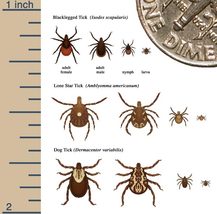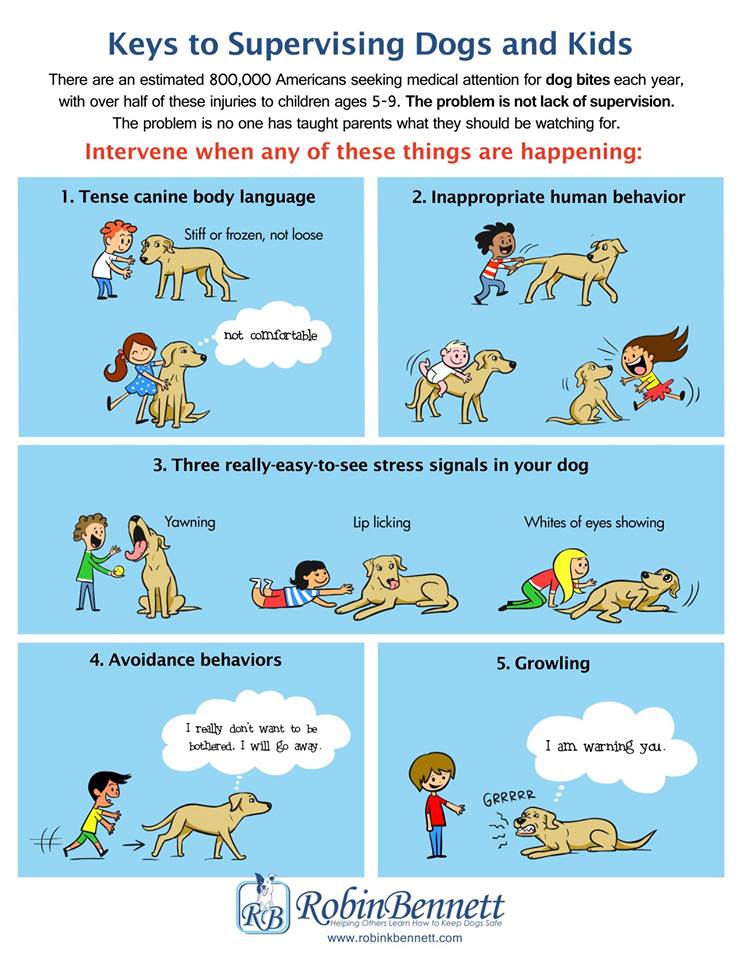Sunshine Golden Retriever Rescue
- Home
- About Our Rescue
-
Adoption Info
- Adoptable Dogs
- Adoption Info
- Courtesy Postings
- Why A Golden?
- Adoption Fees
- Adoption Application
- Adoption Contract
- Setting Up for Success
- Microchips
- Happy Tails 2026 >
- Adoption Stories
- Forever Fosters
- Going Home
- Slip Leads REQUIRED!
- Crate Training
- Separation Anxiety
- Black Goldens
- Adopting a Blind Dog
- Wendy's Rescue
- Surrendering Your Dog
- Fostering
- How You Can Help
- Is it Time to Say Goodbye?
- Education & Healthcare
- Trainers
- Get to Know Us!
- Paypal & Credit Cards
- Tributes
- Rainbow Bridge
- Donation Opportunities
- Bequests
- Members Only
Education & Health Care
Useful links for Dog Owners
Health care...Education...
|
Education...

SGRR has compiled an abundance of information about Golden Retrievers (and other breeds of dogs). We believe strongly in the importance of education and we’re happy to share the knowledge we have gained through experience and research. If you are considering adoption or looking to boost your insight into your current Golden's care, we encourage you to read the information we have provided. Health Care...

The health of your dog is vital to a long-lasting quality of life. Health-related situations may arise with your dog over the course of his/her life, requiring you to educate yourself on how best to help and what resources are available. These articles and links are intended to help with some of the health-related issues you may face. If you are adopting a dog from SGRR who has been treated for Heartworm, be sure to read the information provided on our webpage dedicated to post Heartworm care. |
Ticks and Dogs
 Click to enlarge
Click to enlarge
Ticks are external parasites that feed on the blood of unlucky host animals such as our canine companions. Like mites and spiders, ticks are arachnids. Ticks are most active in from spring through fall and live in tall brush or grass, where they may attach to dogs playing on their turf. These parasites prefer to stay close to the head, neck, feet and ear area. In severe infestations, however, they can be found anywhere on a dog’s body.
The Brown dog tick and the American dog tick, examples of ticks that commonly affect dogs, require three feedings to complete their life cycles. The Blacklegged Tick, also called Deer Tick, is abundant throughout many areas of the Northeastern US. They can carry organisms that cause Lyme Disease, Babesiosis, and Anaplasmosis, all of which are on the increase.
Nymph Stage Deer Ticks
Adult Stage Deer Ticks
Tick Facts:
Tick Bite Prevention:
Tick Removal: REMOVE TICK IMMEDIATELY AND CORRECTLY
Tick can be saved for identification and possible pathogen testing at www.TickReport.com
Resources:
Centers for Disease Control: www.cdc.gov
University of Rhode Island: www.tickencounter.org
Laboratory of Medical Zoology: www.tickdiseases.org
MA Department of Public Health: www.mass.gov/dph
Cape Cod Cooperative Extension: www.capecodextension.org
Barnstable County Department of Health and Environment: www.barnstablecountyhealth.org
The Brown dog tick and the American dog tick, examples of ticks that commonly affect dogs, require three feedings to complete their life cycles. The Blacklegged Tick, also called Deer Tick, is abundant throughout many areas of the Northeastern US. They can carry organisms that cause Lyme Disease, Babesiosis, and Anaplasmosis, all of which are on the increase.
Nymph Stage Deer Ticks
- Are active from early May through early August
- Are about the size of a poppy seed
- Have a bite that is difficult to feel
- Pose the highest risk of transmitting a tick-borne disease, due to their small size. (About 1 in 4 nymph stage Deer Ticks can cause Lyme Disease.)
Adult Stage Deer Ticks
- Are active from September through May
- Are about the size of a sesame seed (About 1 in 2 adult stage Deer Ticks can cause Lyme Disease)
Tick Facts:
- Ticks can be active even in winter, when temperatures are above freezing.
- Tick habitat is in shady, damp, brushy, wooded areas including shrubs and gardens.
- Nymph stage ticks are found mostly at ground level in the leaf litter.
- Adult stage ticks can be found up to a couple of feet off the ground on vegetation.
Tick Bite Prevention:
- Do a tick check after coming inside and tumble-dry clothes for 20 minutes.
- Wearing light-colored clothing makes it easier to see ticks.
- Products containing DEET may be used on skin.
- Products containing Permethrin may be used on clothing and shoes, NOT skin.
Tick Removal: REMOVE TICK IMMEDIATELY AND CORRECTLY
- Using pointy tweezers, grasp tick by the head and pull straight up. Avoid twisting.
- After removing tick, apply antiseptic to bite area.
- Note date when tick was removed.
Tick can be saved for identification and possible pathogen testing at www.TickReport.com
Resources:
Centers for Disease Control: www.cdc.gov
University of Rhode Island: www.tickencounter.org
Laboratory of Medical Zoology: www.tickdiseases.org
MA Department of Public Health: www.mass.gov/dph
Cape Cod Cooperative Extension: www.capecodextension.org
Barnstable County Department of Health and Environment: www.barnstablecountyhealth.org
Canine Lyme Disease and Lyme Disease Nephritis
 In Memory of Bella
In Memory of Bella
Lyme Disease (Borreliosis) in Dogs
Lyme disease is one of the most common tick-transmitted diseases in the world, but only causes symptoms in 5-10% of affected dogs. It is caused by a spirochete (bacteria) species of the Borrelia burgdorferi group. When infection leads to disease in dogs, the dominant clinical feature is recurrent lameness due to inflammation of the joints. There may also be a lack of appetite and depression. More serious complications include damage to the kidneys, and rarely, heart or nervous system disease.
Kidney disease appears to be more prevalent in Labrador Retrievers, Golden Retrievers, Shetland Sheepdogs, and Bernese Mountain dogs. Experimentally, young dogs appear to be more susceptible to Lyme disease than older dogs. Transmission of the disease has been reported in dogs throughout the United States and Europe, but is most prevalent in the upper Midwestern states, the Atlantic seaboard, and the Pacific coastal states.
Symptoms of Lyme Disease in Dogs
Many dogs who develop Lyme disease have recurrent lameness due to inflammation of the joints. Sometimes the lameness lasts for only three to four days but recurs days to weeks later, either in the same leg or in other legs. This is known as “shifting-leg lameness.” One or more joints may be swollen, warm, and painful.
Some dogs may also develop kidney problems. Lyme disease sometimes leads to glomerulonephritis – inflammation and accompanying dysfunction of the kidney's glomeruli (essentially, a blood filter). Eventually, kidney failure may set in as the dog begins to exhibit such signs as vomiting, diarrhea, lack of appetite, weight loss, increased urination and thirst, and abnormal fluid buildups.
Other symptoms associated with Lyme disease in dogs include:
Diagnosing Lyme Disease in Dogs
You will need to give a thorough history of your dog's health, including a background of symptoms and possible incidents that might have precipitated them. The history you provide may give your veterinarian clues as to which organs are being affected. Your veterinarian may run some combination of blood chemistry tests, a complete blood cell count, a urinalysis, fecal examinations, X-rays, and tests specific to diagnosing Lyme disease (e.g., serology). Fluid from the affected joints may also be drawn for analysis.
There are many causes for arthritis, and your veterinarian will focus on differentiating arthritis initiated by Lyme disease from other inflammatory arthritic disorders, such as trauma, degenerative joint disease, or osteochondrosis dissecans (a condition found in large, fast growing breeds of puppies). Immune-mediated diseases will also be considered as a possible cause of the symptoms. An X-ray of the painful joints will allow your doctor to examine the bones for abnormalities.
Treating Dog Lyme Disease
If the diagnosis is Lyme disease, your dog will be treated as an outpatient unless their condition is unstable (e.g., severe kidney disease). Doxycycline is the most common antibiotic that is prescribed for Lyme disease, but others are also available and effective. The recommended treatment length is usually four weeks, but longer courses may be necessary in some cases. Your veterinarian may also prescribe an anti-inflammatory (pain reliever) if your dog is especially uncomfortable.
Unfortunately, antibiotic treatment does not always completely eliminate infection with Borrelia burgdorferi bacteria. Symptoms may resolve but then return at a later date, and the development of kidney disease in the future is always a worry.
Source: petmd.com
Canine Lyme Disease Nephritis
Overview of Canine Lyme Disease Nephritis
In rare occasions, Lyme disease can spread to the kidneys and transform into a specific type of disease, called canine Lyme disease nephritis. This condition is very serious and is similar to renal or kidney failure: your pet will experience a loss of kidney function and power. As this happens, your pet's life is at great risk, and it's crucial that you have him treated by a doctor or veterinarian in order to remedy this issue promptly, or else he faces sure death.
Symptoms
Some of the symptoms of canine Lyme Disease Nephritis mimic those of canine renal failure. This can often make it difficult to distinguish between the two, so you'll need to have a very good sense of the types of symptoms that your dog has been experiencing, as well as the time line on which he's had those symptoms showing, in order to be able to tell your vet what's going on. The basic symptoms of canine Lyme disease nephritis include the following:
If you notice any of these symptoms in your dog you should take your pet to the veterinarian quickly for further examination.
Diagnosing and Treating Canine Lyme Disease Nephritis
The way that your veterinarian will determine whether the symptoms that your dog shows are based upon renal failure generally or Lyme disease in particular is by testing for the presence of Lyme disease antibodies. There are a few different blood and urine tests that your vet will run in order to check this. Additionally, he will likely order a renal function test to check on the status of your pet's kidneys.
There are a number of potential treatment options for Lyme Disease Nephritis. These include changes to diet and water intake, treatment with antihistamines and ACE inhibitors, transfusion of different vitamins and minerals through the blood and others. The exact treatment type will depend upon the severity of your pet's condition as well as any other underlying problems he may have with his health. Speak with your veterinarian for more information about how to best deal with your dog's canine Lyme disease nephritis.
Source: www.vetinfo.com
Note: If your dog is diagnosed with Lyme Disease, insist on a blood test 5 days after treatment. With a diagnosis of Lyme Nephritis it is imperative that the dog gets treatment immediately at a specialized hospital.
It is our hope that providing this information may save a life... In loving memory of SGRR Alumni, Bella Kaplan.
Lyme disease is one of the most common tick-transmitted diseases in the world, but only causes symptoms in 5-10% of affected dogs. It is caused by a spirochete (bacteria) species of the Borrelia burgdorferi group. When infection leads to disease in dogs, the dominant clinical feature is recurrent lameness due to inflammation of the joints. There may also be a lack of appetite and depression. More serious complications include damage to the kidneys, and rarely, heart or nervous system disease.
Kidney disease appears to be more prevalent in Labrador Retrievers, Golden Retrievers, Shetland Sheepdogs, and Bernese Mountain dogs. Experimentally, young dogs appear to be more susceptible to Lyme disease than older dogs. Transmission of the disease has been reported in dogs throughout the United States and Europe, but is most prevalent in the upper Midwestern states, the Atlantic seaboard, and the Pacific coastal states.
Symptoms of Lyme Disease in Dogs
Many dogs who develop Lyme disease have recurrent lameness due to inflammation of the joints. Sometimes the lameness lasts for only three to four days but recurs days to weeks later, either in the same leg or in other legs. This is known as “shifting-leg lameness.” One or more joints may be swollen, warm, and painful.
Some dogs may also develop kidney problems. Lyme disease sometimes leads to glomerulonephritis – inflammation and accompanying dysfunction of the kidney's glomeruli (essentially, a blood filter). Eventually, kidney failure may set in as the dog begins to exhibit such signs as vomiting, diarrhea, lack of appetite, weight loss, increased urination and thirst, and abnormal fluid buildups.
Other symptoms associated with Lyme disease in dogs include:
- Stiff walk with an arched back
- Sensitivity to touch
- Difficulty breathing
- Fever, lack of appetite, and depression
- Superficial lymph nodes close to the site of the infecting tick bite may be swollen
- Heart abnormalities are reported, but rare
- Nervous system complications (rare)
Diagnosing Lyme Disease in Dogs
You will need to give a thorough history of your dog's health, including a background of symptoms and possible incidents that might have precipitated them. The history you provide may give your veterinarian clues as to which organs are being affected. Your veterinarian may run some combination of blood chemistry tests, a complete blood cell count, a urinalysis, fecal examinations, X-rays, and tests specific to diagnosing Lyme disease (e.g., serology). Fluid from the affected joints may also be drawn for analysis.
There are many causes for arthritis, and your veterinarian will focus on differentiating arthritis initiated by Lyme disease from other inflammatory arthritic disorders, such as trauma, degenerative joint disease, or osteochondrosis dissecans (a condition found in large, fast growing breeds of puppies). Immune-mediated diseases will also be considered as a possible cause of the symptoms. An X-ray of the painful joints will allow your doctor to examine the bones for abnormalities.
Treating Dog Lyme Disease
If the diagnosis is Lyme disease, your dog will be treated as an outpatient unless their condition is unstable (e.g., severe kidney disease). Doxycycline is the most common antibiotic that is prescribed for Lyme disease, but others are also available and effective. The recommended treatment length is usually four weeks, but longer courses may be necessary in some cases. Your veterinarian may also prescribe an anti-inflammatory (pain reliever) if your dog is especially uncomfortable.
Unfortunately, antibiotic treatment does not always completely eliminate infection with Borrelia burgdorferi bacteria. Symptoms may resolve but then return at a later date, and the development of kidney disease in the future is always a worry.
Source: petmd.com
Canine Lyme Disease Nephritis
Overview of Canine Lyme Disease Nephritis
In rare occasions, Lyme disease can spread to the kidneys and transform into a specific type of disease, called canine Lyme disease nephritis. This condition is very serious and is similar to renal or kidney failure: your pet will experience a loss of kidney function and power. As this happens, your pet's life is at great risk, and it's crucial that you have him treated by a doctor or veterinarian in order to remedy this issue promptly, or else he faces sure death.
Symptoms
Some of the symptoms of canine Lyme Disease Nephritis mimic those of canine renal failure. This can often make it difficult to distinguish between the two, so you'll need to have a very good sense of the types of symptoms that your dog has been experiencing, as well as the time line on which he's had those symptoms showing, in order to be able to tell your vet what's going on. The basic symptoms of canine Lyme disease nephritis include the following:
- Lethargy
- Loss of weight
- Refusal to eat
- Vomiting regularly
- Swelling of the legs
- Increased water intake and urination frequency
If you notice any of these symptoms in your dog you should take your pet to the veterinarian quickly for further examination.
Diagnosing and Treating Canine Lyme Disease Nephritis
The way that your veterinarian will determine whether the symptoms that your dog shows are based upon renal failure generally or Lyme disease in particular is by testing for the presence of Lyme disease antibodies. There are a few different blood and urine tests that your vet will run in order to check this. Additionally, he will likely order a renal function test to check on the status of your pet's kidneys.
There are a number of potential treatment options for Lyme Disease Nephritis. These include changes to diet and water intake, treatment with antihistamines and ACE inhibitors, transfusion of different vitamins and minerals through the blood and others. The exact treatment type will depend upon the severity of your pet's condition as well as any other underlying problems he may have with his health. Speak with your veterinarian for more information about how to best deal with your dog's canine Lyme disease nephritis.
Source: www.vetinfo.com
Note: If your dog is diagnosed with Lyme Disease, insist on a blood test 5 days after treatment. With a diagnosis of Lyme Nephritis it is imperative that the dog gets treatment immediately at a specialized hospital.
It is our hope that providing this information may save a life... In loving memory of SGRR Alumni, Bella Kaplan.
 In memory and honor of Lacey
In memory and honor of Lacey
RECOGNIZING BLOAT
Bloat is something that all dog owners should be aware of. It is most common in large, deep-chested breeds, and, while they are on the smaller end of the spectrum, that category does include Golden Retrievers. Bloat is a life-threatening condition – approximately 25%-40% of dogs with bloat die.
Recognizing the signs and symptoms of Bloat and knowing what to do in advance can help prevent a life-threatening situation with your beloved fur-friend.
What is Bloat?
Bloat happens when a dog’s stomach fills with gas, food or fluids, making it expand, which puts pressure on other internal organs. That pressure can cut off blood flow to the heart and stomach lining, cause a tear in the wall of the stomach and cause difficulty breathing. The stomach can also rotate or twist, trapping blood in the stomach, sending the dog into shock.
Causes
The exact cause of bloat is unknown. However, some possible causes may be:
Signs & Symptoms
Knowing what to look for is incredibly important, as time is of the essence when it comes to treating your dog for bloat. Here are some of the signs and symptoms to watch for:
Treatment
Again, Bloat is a life-threatening condition. If you think your dog may have bloat bring him/her to your veterinarian immediately!! Treatment will depend on the severity of your dog’s condition – intubation to relieve pressure, antibiotics or steroids to help with shock, or in the most severe cases, surgery to untwist the stomach and return it to it’s normal position.
Prevention
There are some steps that you can take to help prevent your dog from suffering bloat:
We are responsible for our dogs’ safety and well being. Making yourself familiar with the causes, signs and symptoms of bloat is incredibly important for all dog owners, and may even save your dog’s life.
(Information taken from the WebMD and ASPCA websites.)
Bloat is something that all dog owners should be aware of. It is most common in large, deep-chested breeds, and, while they are on the smaller end of the spectrum, that category does include Golden Retrievers. Bloat is a life-threatening condition – approximately 25%-40% of dogs with bloat die.
Recognizing the signs and symptoms of Bloat and knowing what to do in advance can help prevent a life-threatening situation with your beloved fur-friend.
What is Bloat?
Bloat happens when a dog’s stomach fills with gas, food or fluids, making it expand, which puts pressure on other internal organs. That pressure can cut off blood flow to the heart and stomach lining, cause a tear in the wall of the stomach and cause difficulty breathing. The stomach can also rotate or twist, trapping blood in the stomach, sending the dog into shock.
Causes
The exact cause of bloat is unknown. However, some possible causes may be:
- Eating from a raised food bowl
- Having one meal a day
- Excessive eating/drinking
- Eating quickly
- Excessive running/playing after eating
- Stress or trauma
- Dry food only diet
Signs & Symptoms
Knowing what to look for is incredibly important, as time is of the essence when it comes to treating your dog for bloat. Here are some of the signs and symptoms to watch for:
- Restlessness
- Excessive drooling and/or panting
- A swollen stomach
- Anxiousness
- Looking at or focusing on his/her stomach
- Pacing
- Non-productive vomiting (nothing coming up)
- Pale gums
- Rapid heartbeat
- Shortness of breath
- Weakness, even to the point of collapse
- Distended abdomen
- Cold body temperature
Treatment
Again, Bloat is a life-threatening condition. If you think your dog may have bloat bring him/her to your veterinarian immediately!! Treatment will depend on the severity of your dog’s condition – intubation to relieve pressure, antibiotics or steroids to help with shock, or in the most severe cases, surgery to untwist the stomach and return it to it’s normal position.
Prevention
There are some steps that you can take to help prevent your dog from suffering bloat:
- Don’t use a raised bowl unless recommended by your vet
- Don’t let your dog run or play excessively before or after meals
- Feed your dog several small meals through the day instead of one large meal
- Make sure your dog drinks a normal amount of water
We are responsible for our dogs’ safety and well being. Making yourself familiar with the causes, signs and symptoms of bloat is incredibly important for all dog owners, and may even save your dog’s life.
(Information taken from the WebMD and ASPCA websites.)
- Home
- About Our Rescue
-
Adoption Info
- Adoptable Dogs
- Adoption Info
- Courtesy Postings
- Why A Golden?
- Adoption Fees
- Adoption Application
- Adoption Contract
- Setting Up for Success
- Microchips
- Happy Tails 2026 >
- Adoption Stories
- Forever Fosters
- Going Home
- Slip Leads REQUIRED!
- Crate Training
- Separation Anxiety
- Black Goldens
- Adopting a Blind Dog
- Wendy's Rescue
- Surrendering Your Dog
- Fostering
- How You Can Help
- Is it Time to Say Goodbye?
- Education & Healthcare
- Trainers
- Get to Know Us!
- Paypal & Credit Cards
- Tributes
- Rainbow Bridge
- Donation Opportunities
- Bequests
- Members Only


